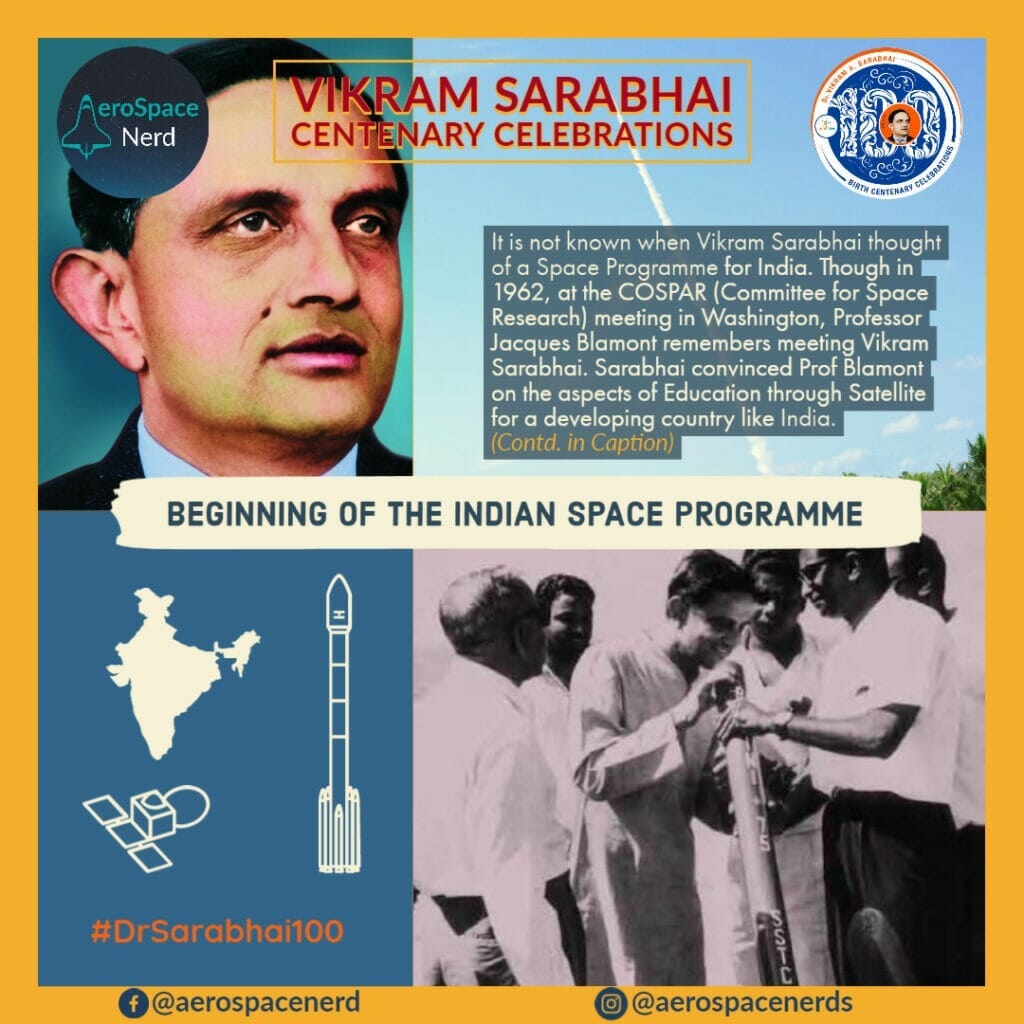Vikram Sarabhai | Beginning of Indian Space Programme
Welcome to Vikram Sarabhai Centenary Celebrations Series, learn about the Beginning of Indian Space Programme by Dr Sarabhai from a fishing hamlet in Thumba.
Welcome to the Vikram Sarabhai Centenary Celebrations Series, learn about the Beginning of the Indian Space Programme.
It is not known when Vikram Sarabhai thought of a Space Programme for India. Though in 1962, at the COSPAR (Committee for Space Research) meeting in Washington, Professor Jacques Blamont remembers meeting Vikram Sarabhai. Sarabhai convinced Prof Blamont on the aspects of Education through Satellite for a developing country like India. And thus a friendship was started which helped India to launch its first rocket. At the same time, Vikram Sarabhai talked to the authorities in India and INCOSPAR was constituted in the Department of Atomic Energy (DAE) in February 1962.
As Mc Cracken described: "In 1961 he (Dr. Sarabhai) began speaking of the Indian view of space research; a view that was clearly different from that of the developed countries which were active in space at that time. He spoke of using satellites to provide television for the half million villages of India; TV in which there would be a single video channel, and 14 different sound channels to bridge the linguistic gaps that divide the Indian nation. He spoke of agricultural; family planning and health education being given to the non-urban population by satellites. He argued that it would be faster to use a satellite to provide a high quality, nationwide telephone system than to use a conventional ground-based microwave system. That is, he spoke of a careful tailoring of Space Science to the national goals of his country. He spoke of space scientists applying their intellectual capabilities to practical problems, and set the example by doing so himself." Thus, Vikram Sarabhai started the Indian Space Programme for national development.
India later proposed to the UN that if the USA and the USSR could come together, we can combine with other nations like France and the UK and create an international facility for all countries to cooperate and participate in International Indian Ocean Expedition (IIOE) and IQSY (International Quiet Sun Years). Then Thumba Equatorial Rocket Launching Station (TERLS) was established in 1963. On 21st November 1963, the Indian Space Programme took its first flight. The first sounding rocket was launched from Indian soil.


